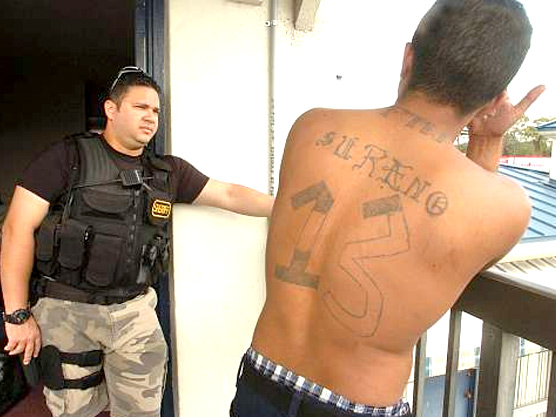
Orlando Ramos never dreamed that one day he would become a school principal. "I had the honor of getting kicked out of schools in two different states: New York and Texas," he said with a wide smile and an unmistakable New York accent. "I was bored, extremely bored. I remember sitting
there and thinking to myself, what on earth does this have to do with real life?"Ramos, 44, finally dropped out of school altogether in the 10th grade and spent the next year living out of his car.
It was the powerful words and deeds of a teacher who helped changed his life. "[He] knocked on my door and said, 'Dude, you need to get out of here.' And sure enough, he found me a GED program. I passed [it] with flying colors, went on to college, and here I am today."
Ramos became the principal of Lee Mathson Middle School in San Jose last year. Much of his 15-year career as a teacher, dean of security, and now principal, has been about using his communication skills, educator's passion and personal experiences to engage those students who are as bored and disillusioned as he once was.
Ramos has gained a reputation for being able to nurture trust with gang members in some of the nation's toughest schools, from Walton High School in the Bronx, N.Y., to Richmond High in Richmond, Calif., where he was recently awarded the California Wellness Foundation Peace Prize for his work.
At Richmond, one of his major successes was significantly decreasing the violence and gang-related incidents at the school. He did this by instituting an elective class for 30 gang members that was woven into the regular school day. The class focuses on teaching students life skills such as anger management, personal finances, and job skills such as resume writing. The students are asked to sign a peace treaty and agree to keep the campus a neutral zone, where no one should walk in fear.
"What I've learned is, it's about the power of relationships. If you just say, 'We have this program, come on in,' it won't work. The kids really need to know that you are on their side and that you care about them."
So this year, his focus is on building those relationships, to create a foundation for this class. He has regular, informal meetings with gang-affiliated students, where they have long conversations about what is going on in their lives.
Sitting in the school office, waiting for one of her regular talks with the principal is a 7th grade student who is a leader of the Sureños gang in the middle school. She started in gangs, she says, in the 3rd grade.
"It was just a thing I seen in my neighborhood. I seen everybody doing it so I wanted to do it too," she said.
San Jose, while not a high crime community like Richmond, has a deeply entrenched gang history, particularly on the South side and East side, where the school is located.
Dominated by the Norteños starting in the 1970s, these areas have become majority "Sureño" neighborhoods in recent years, made up largely of Spanish-speaking immigrant youth.
Ramos says his job is not to encourage kids to leave their gangs, but to help them imagine other options. "Once you begin to realize that [gangs are] about banding together for safety and love, you begin to realize that you can engage kids who are in gangs by showing them there are other paths where they can [find this]," he said.
The seventh-grade student regularly fights other girls and encourages the girls who follow her to do the same. She has been a lead participant in a number of school rumbles, Ramos says, and is easily angered when she perceives she is being disrespected.
"These kids are leaders, we forget that," he said. "They are leading for the wrong reasons, definitely, but it's up to us to push them in the right direction."
"I would say that nine out of 10 times, when I'm dealing with these gang leaders, if I can get them to improve their academics, the number of incidents just drops. It just happens, when the kids realize, 'I can do this,'" he said. "She likes writing poetry, so I'm going to work on getting her involved in the student newspaper."
For now, she is still not convinced that peace between gangs can ever happen on campus, although she agrees that peace would be a good thing. "Sureños really hate Norteños, and the Norteños really hate the Sureños," she told him.
"That's the challenge of leadership," Ramos said.
Copyright © New America Media

